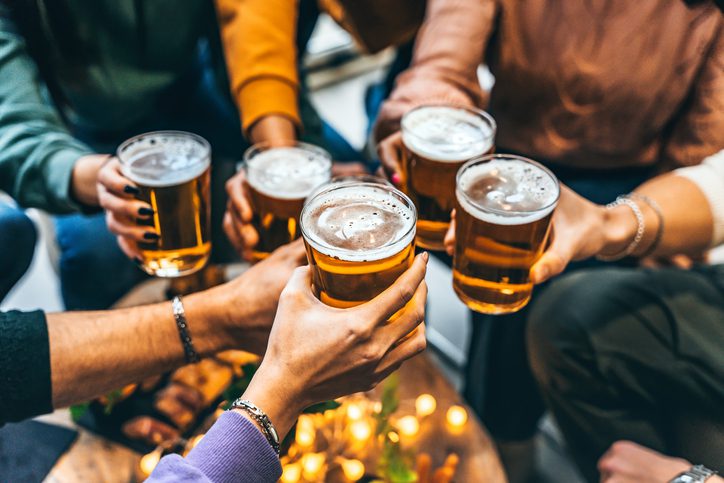A few times a week, you stop with friends at the local bar after work to unwind after a stressful day. On the weekends, you don’t mind a few drinks while watching the game or hanging out with friends. After all, it’s just alcohol.
Don’t Underestimate this Deadly, Damaging Drug
Alcohol use causes both premature death and death from disease, making it a very deadly substance:
- Alcohol can cause heart disease.
- Alcohol creates an increased risk of some forms of cancer.
- Alcohol often leads to injury.
- Traffic accidents due to intoxication are deadly.
- Alcohol poisoning is a high-risk, emergency condition.
Because alcohol can be so far-reaching when it comes to causing illness, injury, and death, researchers suggest no amount of alcohol should be considered safe.
Isn’t Some Alcohol Good for You, Though?
Some studies report that drinking a small bit of alcohol, more specifically wine, may have health benefits. However, those health benefits come from the antioxidants in wine, not the alcohol. Antioxidants from other non-alcoholic sources have the health benefits without the risk. Young people who often drink wine for its benefits are more likely to die from liver disease brought on by routine alcohol consumption. That risk outweighs the minor benefits wine can offer to your health, according to Jamile Wakim-Fleming, MD, in an article from the Cleveland Clinic.
When Does Alcohol Consumption Lead to Addiction?
The above study looks at alcohol risk as related to injury or disease. Yet addiction is another big component of alcohol-related deaths. Maybe you find it easy to stop after just one drink. Maybe you don’t drink very often. This level of consumption could, to some degree, be considered safe.
Yet, even with moderate use over a period of time, you could develop alcohol use disorder, a condition in which the body and brain become dependent on alcohol. With 15 million Americans suffering from alcohol use disorder, according to the National Institute on Alcohol Abuse and Alcoholism, it’s a very real condition you cannot ignore.
Alcohol use disorder develops over five stages:
Stage 1: Occasional use. There may be some instances of binge drinking in which four or five drinks are consumed within a few hours. It is possible for alcohol poisoning to occur in this stage.
Stage 2: Drinking increase. A person tends to consume more alcohol to get the same effects they were having. Frequency increases, and in some cases, the alcoholic beverages become more potent. Many people say they drink because they are bored, stressed, or just hanging out with friends.
Stage 3: Drinking continues to increase, leading to problem drinking. Someone at this stage begins to feel the physical and emotional impact of consistent drinking. They may become more anxious and depressed. Many lose sleep or feel sick, especially if they are drinking large amounts. Relationship problems begin to develop. Social activity is limited.
Stage 4: Dependence forms. In this stage, a person is dependent on alcohol, meaning he or she needs to drink on a routine basis. They know the risks of drinking but no longer feel able to control their consumption. They develop a tolerance such that if they stop using, they feel body tremors, nausea, a racing heart, and severe irritability. These are signs of withdrawal.
Stage 5: Addiction is the final stage. Alcoholism happens when a person no longer drinks for pleasure but for the physical and psychological need to do so. They crave the alcohol and cannot feel okay without it. Addiction is one of the most overwhelming situations to be in – without help, it can seem impossible to move forward.
If you’re using alcohol for any reason, consider the value in quitting. Even if you think it is safe, the movement from stage 1 through stage 5 can take a matter of weeks for some people. For others, it happens over years. In all cases, it is life-threatening.
Reach out to us for alcohol addiction treatment. We can offer immediate help. Our alcohol detox program at The Ranch at Dove Tree may be the first step in finding a way forward.












